Attending a university is arguably one of the most expensive investments one will make in his or her lifetime, so it is important to research the bachelor’s degrees with the best return on investment. According to Forbes, 65 percent of graduating seniors had student loan debt in 2018, and the average student loan debt currently stands at $32,731 for 2020. This means that choosing a major with the highest return on investment (ROI) is becoming more important now than ever before. Below, we have compiled a list of the top 10 bachelor’s degrees with the best return on investment to help prospective students select a program that is more likely to pay off down the road.
Methodology
We are here to help future college students weigh the benefits and costs of their academic options. To start, we generated a list of schools from PayScale and narrowed down the initial pool of more than 200 schools into the top 50 programs based on the methodology. Using data collected from the National Center for Education Statistics, PayScale, and each of the following school’s websites, we’ve developed a list of 50 bachelor’s degrees from the colleges and universities that provide in-state students with the highest ROI on their tuition. ROI rankings for each institution are mainly based on two factors — how much a student will truly pay to earn a degree in a particular subcategory weighed against the average salaries of graduates 20 years later. We organized the following list of 10 bachelor’s degrees into 50 schools, featuring the top five schools in each group.
Average Cost of Attendance
When selecting a bachelor’s degree with the best return on investment, the first factor to consider is the average cost of attendance. After all, this is part of the equation to determine whether or not the money you spend now will pay off down the road. For the following list, tuition rates are ranked based on how much an in-state student can expect to pay for one year of study, taking 15 hours of courses per semester. We also provided costs for out-of-state students as well, though these figures were not calculated in our ranking. Tuition costs were taken from each school’s financial website.
Points:
Under $7,500: 5 points
$7,500 to $15,000: 3 points
$15,001 and above: 1 point
Average Salary
No matter how you look at it, college is an investment — of both money and time. To get a better idea of whether this investment would pay off in the short-term, we also looked at the average salaries for graduates after earning a bachelor’s degree in one of the following 10 categories. The numbers below are based on the average salaries of graduates who have 10 or more years of experience in the field. Students who are interested in pursuing an occupation that does not pay well may consider enrolling in a lower-cost institution for a better ROI.
Points:
$130,000 or more: 7 points
$115,000 to $129,999: 5 points
$100,000 to $114,999: 4 points
$85,000 to $99,999: 3 points
$70,000 to $84,999: 2 points
Less than $70,000: 1 point
20-Year ROI
Contrary to popular belief, the 20-year ROI figure is not how much someone will earn 20 years after graduating. Rather, this number represents the amount of money he or she will make over 20 years — minus the total cost of tuition. Ultimately, the 20-year ROI will boil down to knowing what students pay out-of-pocket for their degrees versus how much money that degree will help them earn over 20 years. While these factors may or may not be the only reasons why a student chooses a certain college, running the numbers and considering the 20-year ROI can help make the decision easier. The 20-year ROI figures are reported from PayScale.
Points:
$750,000 or more: 7 points
$650,000 to $749,999: 5 points
$550,000 to $649,999: 4 points
$450,000 to $549,999: 3 points
Less than $450,000: 1 point
Ranking Top 10 Bachelor’s Degrees With the Best Return on Investment
Nursing
Those who wish to work in the field of healthcare may consider pursuing a nursing major. Nurses not only enjoy a high level of job security but also lucrative salaries as well. Although these positions are already in demand, more jobs are projected to become available as the baby boomer generation ages and retires.
1. University of California-Los Angeles
Los Angeles, California

Points: 12
Program Website
Established in 1919, the University of California-Los Angeles is a public research university and the fourth-oldest campus of the 10-school University of California System. UCLA’s School of Nursing offers a high-value, four-year Bachelor of Science in Nursing program that is one of the top nursing bachelor’s degrees with the best return on investment. The economical degree program prepares students to take the National Council Licensing Examination (NCLEX) to become registered nurses (RNs) after graduation. Courses cover areas such as human anatomy, pathophysiology, pharmacology, mental health nursing, maternity nursing, pediatrics nursing, public health nursing, and advanced leadership and role integration. A clinical internship is also required for graduation.
In-State Tuition: $13,240
Out-of-State Tuition: $42,994
20-Year ROI: $556,000
Average Mid-Career Salary: $127,100
2. San Jose State University
San Jose, California

Points: 11
Program Website
San Jose State University is a public institution of higher learning and the oldest public university on the West Coast. Founded in 1857, it is also the founding campus of the California State University System and a top choice for students seeking a low-cost bachelor’s in nursing degree with the best return on investment. SJSU’s economical B.S. in Nursing prepares undergraduates for professional nursing practice in various community and acute care settings as well as for graduate studies and continuing education. The program is accredited by the Commission on Collegiate Nursing Education (CCNE).
In-State Tuition: $7,852
Out-of-State Tuition: $19,732
20-Year ROI: $552,000
Average Mid-Career Salary: $114,700
3. Stony Brook University
Stony Brook, New York

Points: 9
Program Website
Stony Brook University is a public space- and sea-grant research university and one of four campuses that make up the State University of New York (SUNY) System. Founded in 1957 as State University College on Long Island, SBU offers a best-value B.S. in Nursing degree that applies principles from the humanities, arts, and sciences to patient-centered nursing practice. Required courses cover anatomy and physiology, microbiology, and lifespan development. Graduates are eligible to sit for the National Council Licensing Examination (NCLEX) to become registered nurses (RNs). An accelerated baccalaureate program and an RN-to-BSN degree are also available.
In-State Tuition: $10,175
Out-of-State Tuition: $27,845
20-Year ROI: $438,000
Average Mid-Career Salary: $116,700
4. Rutgers University-New Brunswick
New Brunswick, New Jersey

Points: 8
Program Website
Established in 1766, Rutgers University-New Brunswick is the oldest of the school’s three campuses and a top choice for nursing bachelor’s degrees with the best return on investment. Rutgers offers three undergraduate nursing options: a traditional, low-priced, four-year program that prepares students to become licensed registered nurses (RNs), a 14-month second-degree program for students with a bachelor’s in another field, and a four-semester RN-to-B.S. in Nursing program designed for licensed RNs seeking a BSN degree. Depending on the option chosen, coursework is offered on-campus in New Brunswick, Newark, Blackwood, or online.
In-State Tuition: $15,407
Out-of-State Tuition: $15,407
20-Year ROI: $542,000
Average Mid-Career Salary: $111,000
5. University of Minnesota-Twin Cities
Minneapolis, Minnesota

Points: 6
Program Website
Founded in 1841, the University of Minnesota-Twin Cities is a public research university and the oldest and largest campus in the University of Minnesota System. UMN offers a top-value B.S. in Nursing program that is accredited by the Commission on Collegiate Nursing Education (CCNE). Students who enroll in the program as freshmen can expect to take courses on the Twin Cities campus, while those who transfer into the affordable BSN program complete their program requirements on the Rochester campus. Graduates may earn their degrees within four years of full-time study.
In-State Tuition: $15,027
Out-of-State Tuition: $33,325
20-Year ROI: $449,000
Average Mid-Career Salary: $104,000
Business
Those pursuing a business major can expect to take courses in finance, marketing, and accounting. While undergraduates can broadly apply the skills learned in these courses to several industries, the ROI one will see with this field of study depends on the specific school where the degree was earned.
1. Georgia Institute of Technology
Atlanta, Georgia

Points: 17
Program Website
Also known as Georgia Tech, the Georgia Institute of Technology is a member of the University System of Georgia. Established as the Georgia School of Technology in 1885, Georgia Tech offers a low-priced B.S. in Business Administration that offers one of the best returns on investment for undergraduate business majors. Students may select a concentration of electives in one of the following areas: strategy and innovation, operations and supply chain management, leadership and organizational change, information technology management, marketing, general management, finance, or accounting. The affordable degree program provides the conceptual and analytical tools necessary to analyze complex problems and prepare graduates for managerial and business-related responsibilities.
In-State Tuition: $12,682
Out-of-State Tuition: $33,794
20-Year ROI: $856,000
Average Mid-Career Salary: $133,400
2. University of California-Berkeley
Berkeley, California
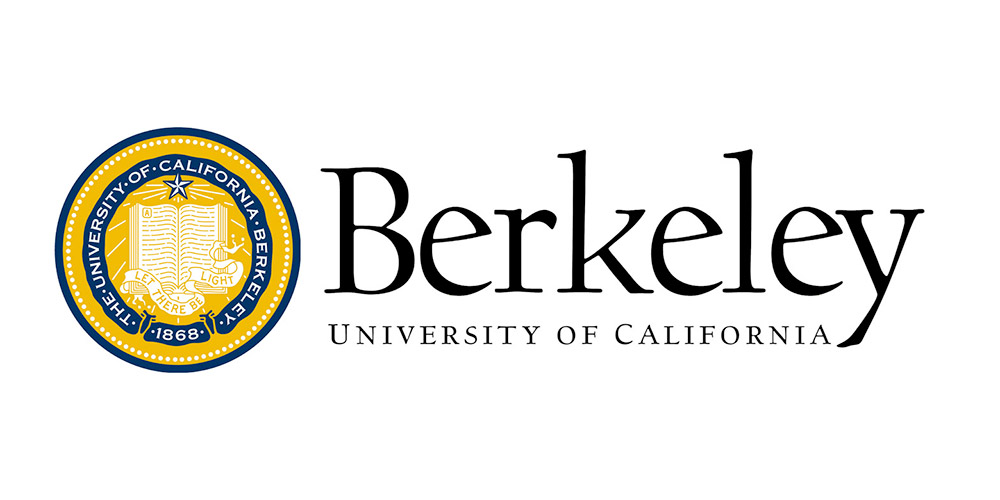
Points: 17
Program Website
The University of California-Berkeley is a public research university that offers several business bachelor’s degrees with the best return on investment. Established in 1868, UC Berkeley is the flagship institution and the oldest of the 10 campuses that make up the University of California System. Students can pursue a high value B.S. in Business Administration that focuses on core courses in organizational behavior, business communication, marketing, finance, and accounting. UC Berkeley also provides several unique undergraduate programs in biology and business, global management, and management, entrepreneurship, and technology.
In-State Tuition: $14,253
Out-of-State Tuition: $44,007
20-Year ROI: $759,000
Average Mid-Career Salary: $143,300
3. California Polytechnic State University-San Luis Obispo
San Luis Obispo, California

Points: 13
Program Website
Established in 1901, California Polytechnic State University-San Luis Obispo is a public research university and one of two polytechnic institutions in the California State University System. The school offers an affordable undergraduate business administration major that requires students to choose one of nine concentration areas: consumer packaging, accounting and law, financial management, entrepreneurship, information systems, marketing, management and human resources, quantitative analysis, or real estate finance. Students begin the high-value degree program by developing a comprehensive understanding of business before building on that foundation through upper-level classes in their respective concentrations.
In-State Tuition: $9,943
Out-of-State Tuition: $23,833
20-Year ROI: $699,000
Average Mid-Career Salary: $119,500
4. SUNY Binghamton University
Binghamton, New York

Points: 12
Program Website
Binghamton University, established in 1946, is a public research university and one of four schools that make up the State University of New York (SUNY) System. SUNY Binghamton’s School of Management, ranked 14th on the list of “25 Best Colleges for Earning a Degree” by Fortune magazine, provides a low-cost B.S. in Business Administration. The top-value curriculum offers a strong foundation in the liberal arts as well as the basic functional areas and disciplines of management. Students may choose from concentrations in areas such as supply chain management, quantitative finance, marketing, management information systems, leadership and consulting, finance, entrepreneurship, or business analytics. SUNY Binghamton also offers a budget-friendly B.S. in Accounting.
In-State Tuition: $10,201
Out-of-State Tuition: $27,791
20-Year ROI: $590,000
Average Mid-Career Salary: $118,500
5. New Jersey Institute of Technology
Newark, New Jersey

Points: 11
Program Website
Founded as Newark Technical School in 1881, the New Jersey Institute of Technology is a public research university and one of the top schools for a business bachelor’s degree with the best return on investment. NJIT offers an inexpensive, 120-credit B.S. in Business that includes several 15-credit concentration options in innovation and entrepreneurship, financial technology, finance, marketing, management information systems, and accounting systems. Beyond the classroom, students are encouraged to apply what they have learned through cooperative education experiences and internships. The affordable bachelor’s degree program is accredited by the Association to Advance Collegiate Schools of Business (AACSB).
In-State Tuition: $17,674
Out-of-State Tuition: $33,386
20-Year ROI: $704,000
Average Mid-Career Salary: $121,300
Engineering
As a whole, the field of engineering uses mathematical and scientific principles to determine the most ideal solutions for real-life problems. The versatile skills that engineering majors learn are extremely valuable to a multitude of applications in the real world. In fact, engineering is often recognized as one of the highest-paying, hottest STEM careers.
1. Texas A&M University
College Station, Texas
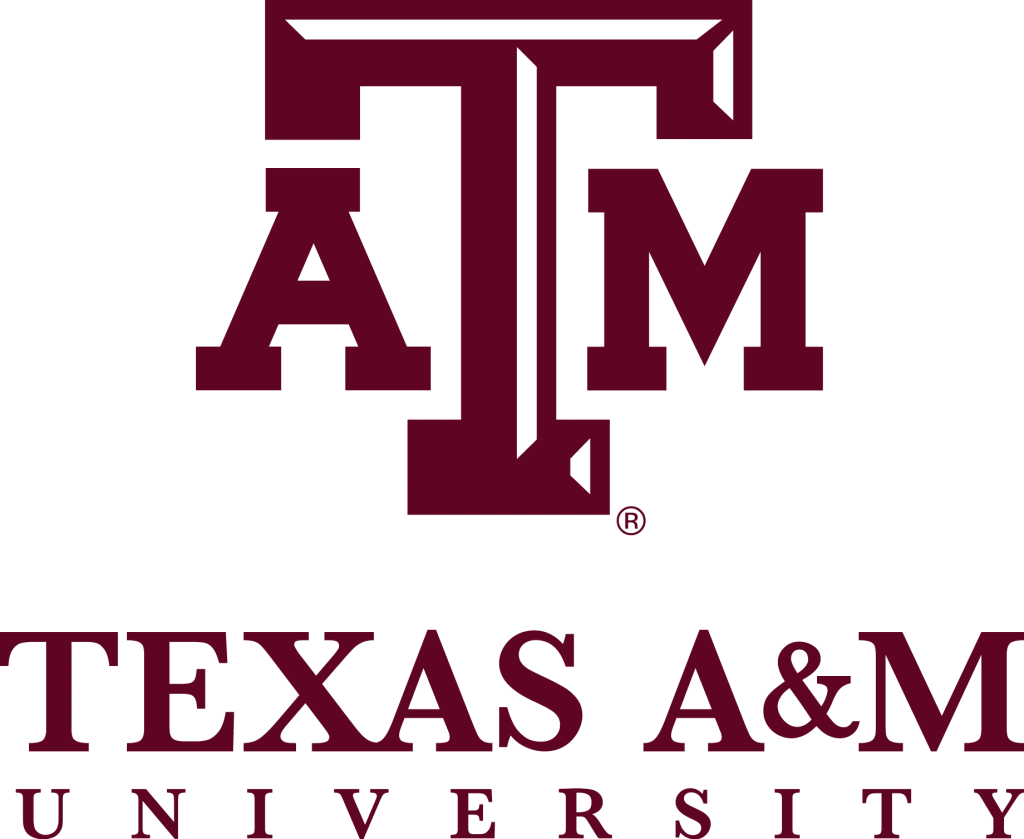
Points: 12
Program Website
Founded in 1871, Texas A&M University is a public research university and the founding campus of the Texas A&M University System. Texas A&M offers more than 20 economical undergraduate engineering degrees through 14 departments — many of which are ranked among the top engineering programs in the nation. Students can choose from high-value majors in areas such as aerospace, biological and agricultural, biomedical, chemical, and mechanical engineering as well as interdisciplinary, petroleum, ocean, nuclear, and computer science engineering. Beyond the classroom, students have many opportunities to apply what they have learned through undergraduate research projects and internships.
In-State Tuition: $12,153
Out-of-State Tuition: $38,602
20-Year ROI: $575,000
Average Mid-Career Salary: $115,700
2. University of California-San Diego
San Diego, California

Points: 12
Program Website
The University of California-San Diego, founded in 1960, is a public land-, sea-, and space-grant research university and a member of the University of California System. UCSD’s Jacobs School of Engineering offers economical undergraduate engineering majors in areas such as bioengineering, computer science and computer engineering, and nanoengineering as well as structural, mechanical, environmental, aerospace, and electrical engineering, to name a few. Beyond the classroom, students benefit from many personal and professional development opportunities, including co-ops, STEM outreach, engineering service-learning, research in world-class labs, engineering competition teams, and a team internship program.
In-State Tuition: $14,415
Out-of-State Tuition: $44,169
20-Year ROI: $642,000
Average Mid-Career Salary: $123,700
3. University of Alaska Fairbanks
Fairbanks, Alaska

Points: 10
Program Website
Established in 1917 as the Alaska Agricultural College and School of Mines, the University of Alaska Fairbanks is a public sea-, land-, and space-grant research university and the flagship campus of the University of Alaska System. The Princeton Review recently designated UAF as one of the “best in the West” — the only postsecondary school within 1,500 miles to earn this distinction. UAF’s College of Engineering and Mines offers eight low-cost B.S. degrees in civil, computer, computer science, electrical, geological, mechanical, mining, and petroleum engineering. All undergraduate programs are accredited by the Accreditation Board for Engineering and Technology (ABET).
In-State Tuition: $7,080
Out-of-State Tuition: $21,216
20-Year ROI: $527,000
Average Mid-Career Salary: $70,400
4. The University of Texas at Austin
Austin, Texas

Points: 10
Program Website
The University of Texas at Austin, founded in 1883, is a public research university and the flagship campus of the University of Texas System. UT Austin’s Cockrell School of Engineering offers 11 best-value engineering majors in areas such as architectural, chemical, biomedical, aerospace, and civil engineering as well as environmental, electrical and computer, computational, mechanical, and petroleum engineering. Undergraduates learn to use both their analytical and creative sides. Through experiential learning environments, hands-on projects, and opportunities to solve real-world problems, students become engineers from the first day of study.
In-State Tuition: $10,824
Out-of-State Tuition: $38,326
20-Year ROI: $539,000
Average Mid-Career Salary: $112,800
5. George Mason University
Fairfax, Virginia

Points: 10
Program Website
Established in 1949, George Mason University is a public research university that began as the Northern Virginia branch of the University of Virginia. GMU’s Volgenau School of Engineering provides numerous low-cost Bachelor of Science degrees in majors such as civil and infrastructure, systems, mechanical, electrical, cybersecurity, and computer engineering as well as a degree in bioengineering. In addition to completing a rigorous curriculum, students benefit from hands-on labs and workshops that provide the experience and training they need to be competitive candidates after graduation. Approximately 10 percent of GMU engineering graduates go on to graduate school, while 90 percent find careers in their chosen fields.
In-State Tuition: $12,564
Out-of-State Tuition: $36,024
20-Year ROI: $545,000
Average Mid-Career Salary: $112,900
Humanities
Students majoring in humanities study philosophy, foreign languages, history, literature, English, and other related subjects. Since there is no one specific career path for those who major in humanities, students should understand that the ROI they will see will mainly depend on the occupation or career path they pursue after they graduate with their degrees.
1. University of Maryland-Baltimore County
Baltimore, Maryland
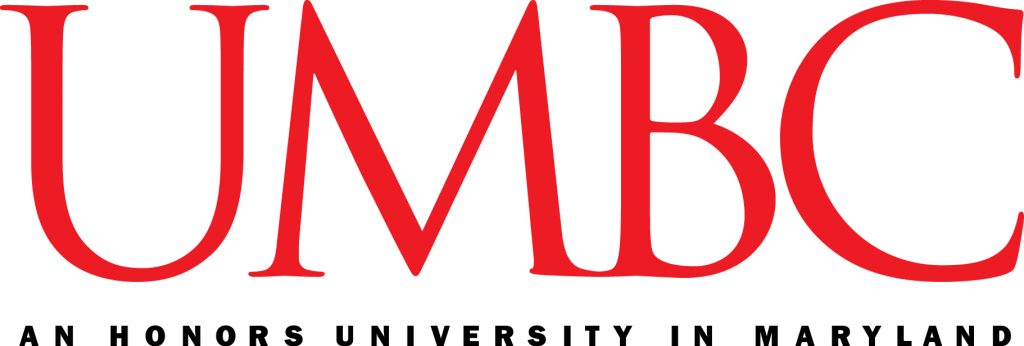
Points: 10
Program Website
The University of Maryland-Baltimore County is a public university and the original campus of the University of Maryland System. Established in 1807, it is also home to some of the oldest professional schools in the country. UMBC’s College of Arts, Humanities, and Social Sciences spans the centuries, the disciplines, and the globe. From psychology to economics to the visual arts, from American studies to Asian studies, and from communication studies and media to ancient studies, undergraduates have many options for pursuing a humanities major at UMBC. Students also have countless opportunities for internships, creative work, research, and other co-curricular activities to help them develop the knowledge and skills necessary to succeed in their careers.
In-State Tuition: $12,028
Out-of-State Tuition: $27,662
20-Year ROI: $451,000
Average Mid-Career Salary: $110,100
2. University of Illinois at Urbana-Champaign
Urbana, Illinois
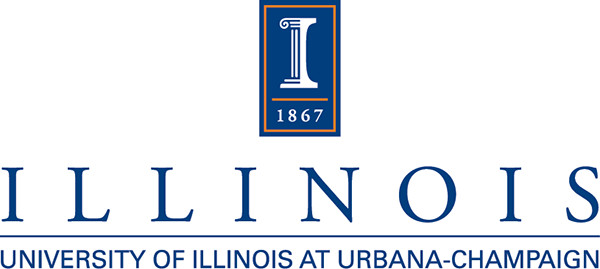
Points: 9
Program Website
Founded in 1867, the University of Illinois at Urbana-Champaign is a public sea-, space-, and land-grant research university and the flagship campus of the University of Illinois System. UIUC’s College of Liberal Arts & Sciences offers more than 70 economical majors that span the humanities, social sciences, mathematics, and physical sciences. Areas of study include the cultural arts, art history, communication and public relations, psychology, African-American and Asian-American studies, and global studies, to name a few. LAS organizes its majors into three categories: secondary teacher education, specialized curricula, and the Sciences and Letters curriculum, which typically houses the humanities programs.
In-State Tuition: $15,122
Out-of-State Tuition: $32,264
20-Year ROI: $525,000
Average Mid-Career Salary: $115,300
3. University of Michigan-Ann Arbor
Ann Arbor, Michigan

Points: 9
Program Website
The University of Michigan-Ann Arbor is a public sea- and space-grant research university and the flagship campus of the University of Michigan System. Founded in 1817 in Detroit, it is also the oldest institution of higher learning in the state. UMich’s College of Literature, Science, and the Arts awards three basic 120-credit, affordable degrees: the Bachelor in General Studies, the Bachelor of Science, and the Bachelor of Arts. Humanities-focused majors include best-value programs in the visual and performing arts, philosophy, religion, and literature. Humanities courses focus on the human condition using speculative, critical, and analytical methods.
In-State Tuition: $15,558
Out-of-State Tuition: $51,200
20-Year ROI: $559,000
Average Mid-Career Salary: $112,200
4. Weber State University
Ogden, Utah

Points: 8
Program Website
Founded as Weber Stake Academy in 1889 by the Church of Jesus Christ of Latter-day Saints, Weber State University is a public university and a top choice for inexpensive humanities bachelor’s degrees with the best return on investment. Weber State’s Telitha E. Lindquist College of Arts & Humanities provides exceptional undergraduate programs in visual art and design, communication, the performing arts, foreign languages, and English. Small classrooms combined with hands-on learning environments and innovative curricula taught by outstanding faculty make working toward a humanities degree at Weber State a personalized experience.
In-State Tuition: $5,986
Out-of-State Tuition: $15,969
20-Year ROI: $444,000
Average Mid-Career Salary: $70,000
5. Miami University-Oxford
Oxford, Ohio

Points: 8
Program Website
Miami University-Oxford is a public research university and a member of the University System of Ohio. Established in 1809, it is also the second-oldest institution of higher learning in the state. Miami’s College of Arts and Science offers top-value undergraduate programs in the humanities, including bachelor’s degrees in global and cultural studies, media studies and communication, psychology and human behavior, literature and writing, world languages, and history, philosophy, and religion. All undergraduates are encouraged to participate in research opportunities, internships, study-abroad experiences, scholarship programs, and honors programs.
In-State Tuition: $15,911
Out-of-State Tuition: $35,937
20-Year ROI: $485,000
Average Mid-Career Salary: $107,300
Social Work/Criminal Justice
Criminal justice majors and social workers typically work with ex-offenders, current prison inmates, or those in need of intervention or prevention programs. They are equipped to support family members or provide rehabilitation services. Career options may include conflict mediators, transitional case managers, arbitration or mitigation specialists, or parole officers.
1. California State University-East Bay
Hayward, California

Points: 12
Program Website
Established in 1956 as the State College for Alameda County, California State University-East Bay is a public university and a member of the 23-campus California State University System. CSU-East Bay confers a low-cost, 120-unit B.S. in Criminal Justice program that focuses on criminological theory, practices, and concepts of the criminal justice system. Areas of study include diversity and equity, corrections and community-based programs, forensic science and investigation, and crime prevention. Graduates are prepared for careers in community-based programs, law, victim advocacy, corrections, and law enforcement.
In-State Tuition: $7,000
Out-of-State Tuition: $18,880
20-Year ROI: $477,000
Average Mid-Career Salary: $103,500
2. James Madison University
Harrisonburg, Virginia

Points: 10
Program Website
James Madison University is a public research university named in honor of President James Madison. Established as the State Normal and Industrial School for Women at Harrisonburg in 1908, JMU offers a best-value Bachelor of Social Work that exposes students to organizations and issues at national, state, and local levels through service-learning, interviews, conferences, and policy forums. Students complete 120 credit hours of study, including core courses in research methods, human behavior, social policy, and social work practice. Undergraduates also complete a social work field practicum to gain hands-on, real-world experience in the field.
In-State Tuition: $12,206
Out-of-State Tuition: $29,106
20-Year ROI: $493,000
Average Mid-Career Salary: $108,900
3. University of Utah
Salt Lake City, Utah

Points:
Program Website
The University of Utah, founded in 1850 as the University of Deseret, is a public space-grant research university and the state’s flagship institution of higher learning. Recognized for providing a social work bachelor’s degree with the best return on investment, U of U offers a budget-friendly Bachelor of Social Work that requires 48 credits of study in the major, including an internship or practicum experience. Core requirements include courses in social diversity and cultural understanding, human behavior, statistics, social welfare policy, research and evaluation, and global community-based research. Undergraduates can earn their degree within four years of full-time study.
In-State Tuition: $8,615
Out-of-State Tuition: $27,220
20-Year ROI: $435,000
Average Mid-Career Salary: $110,400
4. University of Arizona
Tucson, Arizona
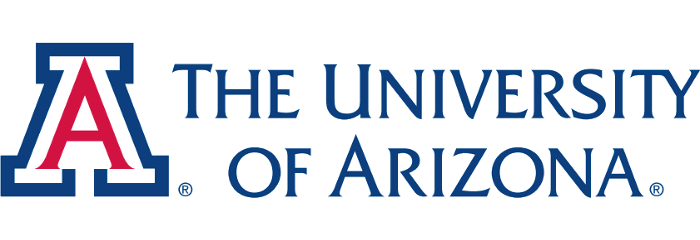
Points: 8
Program Website
The University of Arizona, established in 1885, is a public research university and a top choice for undergraduates seeking a criminal justice degree with the best return on investment. UA’s College of Social and Behavioral Sciences offers a four-year, low-priced B.S. in Criminal Justice Studies that provides a focus on corrections and court operations and management, police, juvenile justice systems, and mental health law. Students are also exposed to public administration courses that impart core skill sets such as the formation of public policy, nonprofit and public management, ethics, and leadership. Graduates are prepared for careers in court administration, forensic science, law, national security, and law enforcement.
In-State Tuition: $12,691
Out-of-State Tuition: $36,718
20-Year ROI: $431,000
Average Mid-Career Salary: $101,000
5. University of Massachusetts-Lowell
Lowell, Massachusetts

Points: 6
Program Website
The University of Massachusetts-Lowell, founded in 1894, is a public research university and a member of the University of Massachusetts System. UMass Lowell confers a budget-friendly B.S. in Criminal Justice and Criminology that includes five areas of concentration: homeland security, crime and mental health, violence, corrections, and police. All students complete a curriculum comprised of topics in technology and crime analysis, research and evaluation, crime prevention, and corrections as well as law enforcement, criminal justice, criminology, and both criminal justice and juvenile justice processes.
In-State Tuition: $15,648
Out-of-State Tuition: $33,574
20-Year ROI: $512,000
Average Mid-Career Salary: $73,800
Education
If a student has a passion for teaching others and working with children, a bachelor’s degree in education may be the ideal career path. However, prospective educators should keep in mind that this occupation has a low ROI, meaning that they may not earn as much as they would like after graduation. Still, the love for learning continues to drive teachers across the country, regardless of the salaries they make.
1. University of Houston
Houston, Texas

Points: 10
Program Website
The University of Houston, founded in 1927, is a public research university and the primary campus of the University of Houston System. The third-largest institution of higher learning in the state, UH confers a best-value B.S. in Teaching and Learning designed for those interested in teaching special education at all levels as well as those who wish to teach children from early childhood through eighth grade. Areas of study include classroom management, social education, assessment of children, and individuals with disabilities. All students must complete a student teaching component and a practicum experience before graduating from the program.
In-State Tuition: $9,221
Out-of-State Tuition: $21,749
20-Year ROI: $479,000
Average Mid-Career Salary: $103,900
2. University of Delaware
Newark, Delaware
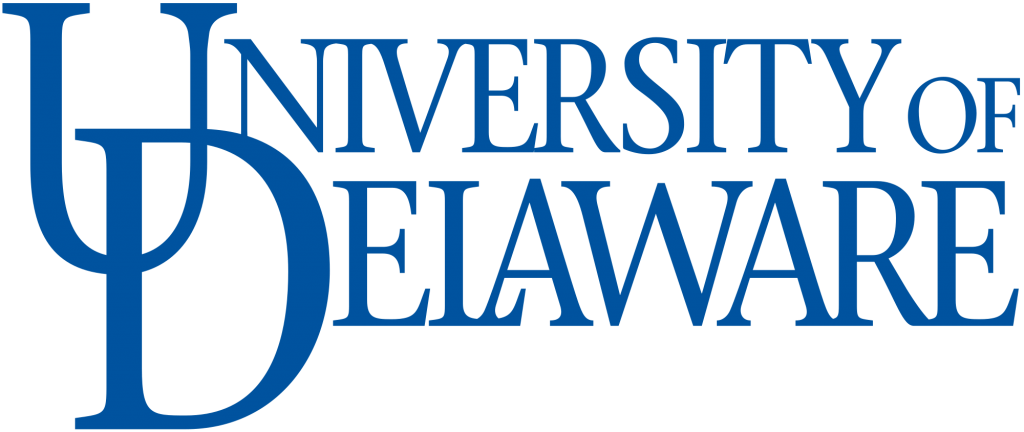
Points: 10
Program Website
The University of Delaware is a public land-, sea-, and space-grant research university and the largest institution of higher learning by enrollment in the state. UD’s College of Education and Human Development offers a low-cost bachelor’s degree in elementary teacher education (ETE) and a bachelor’s degree in early childhood education (ECE). Those pursuing the affordable ETE degree program can prepare for certification in two specialty areas: elementary education and one of six concentrations, including special education, middle school social studies, middle school science, middle school mathematics, middle school English, and English as a second language. Both programs feature a rigorous curriculum as well as field experiences, including student teaching and observations.
In-State Tuition: $14,280
Out-of-State Tuition: $35,710
20-Year ROI: $488,000
Average Mid-Career Salary: $105,400
3. San Diego State University
San Diego, California

Points: 8
Program Website
Established as San Diego Normal School in 1897, San Diego State University is the third-oldest institution of higher learning in the 23-campus California State University System. SDSU’s College of Education offers a best-value liberal studies major designed for future elementary and middle school teachers. Recognized as one of the largest majors by enrollment at SDSU, the economical liberal studies program features options in areas such as bilingual and special education as well as focus areas in science, mathematics, or literacy. Graduates are prepared for career paths not only as teachers but also as instructional designers, reading specialists, and school administrators.
In-State Tuition: $7,510
Out-of-State Tuition: $19,390
20-Year ROI: $412,000
Average Mid-Career Salary: $102,800
4. University of Wisconsin-Madison
Madison, Wisconsin

Points: 8
Program Website
Established in 1848, the University of Wisconsin-Madison is the oldest and largest public university in the state as well as the flagship campus of the University of Wisconsin System. UW-Madison provides several low-priced education bachelor’s degrees with the best return on investment. Undergraduates can pursue a top-value B.S. in Education in Elementary Education in which they complete a rigorous curriculum, community field experiences, supervised fieldwork and self-examination. UW-Madison also offers an affordable B.S. in areas such as art education, educational studies, physical education, and special education.
In-State Tuition: $10,725
Out-of-State Tuition: $37,785
20-Year ROI: $423,000
Average Mid-Career Salary: $104,400
5. CUNY Queens College
Queens, New York

Points: 7
Program Website
Queens College, founded in 1937, is a public institution of higher learning and a member of the City University of New York (CUNY) System. The Division of Education at Queens College offers affordable B.A. degrees in art education, family and consumer sciences education, and music education for all grades as well as childhood education for first through sixth grade and social studies, world languages, science, mathematics, and English education programs for grades seven through 12. Students may also pursue a Bachelor of Science in Physical Education for all grades. The School of Education is accredited by the National Council for Accreditation of Teacher Education (NCATE) and the Council for the Accreditation of Teacher Preparation (CAEP).
In-State Tuition: $7,538
Out-of-State Tuition: $15,488
20-Year ROI: $424,000
Average Mid-Career Salary: $96,700
Computer Science
Those who major in computer science will develop the knowledge and skills necessary to fulfill the great demand for high-paying tech positions. Due to the shortage of workers who can develop, code, and invent new technology, students who pursue a Bachelor’s in Computer Science degree may be able to use that scarcity to their advantage and fulfill this demand.
1. Colorado School of Mines
Golden, Colorado

Points: 15
Program Website
The Colorado School of Mines, established in 1874, is a public research university focused on engineering and science. Specifically, it is ranked as the top institution of higher learning in the world for mining engineering and mining. However, it is also home to a high-value computer science program — the fastest-growing program at Mines. Students can choose from several academic paths, including a general computer science track as well as tracks that combine computer science with fields such as robotics and intelligent systems, data science, computer engineering, and business. Students may also pursue both a low-priced B.S. and a M.S. degree simultaneously.
In-State Tuition: $19,062
Out-of-State Tuition: $39,762
20-Year ROI: $909,000
Average Mid-Career Salary: $139,600
2. University of California-Irvine
Irvine, California

Points: 11
Program Website
The University of California-Irvine is a public land-grant research university and one of 10 campuses that make up the University of California System. The only computing-focused school in the UC System, the Donald Bren School of Information and Computer Sciences offers several economical undergraduate computer science majors through its three departments: statistics, informatics, and computer science. Students may pursue a best-value B.S. in Information and Computer Science or a budget-friendly bachelor’s degree in computer science and engineering. Those who pursue the undergraduate major in computer science can choose from nine specializations in areas such as bioinformatics, general computer science, visual computing, systems and software, intelligent systems, information, and network systems.
In-State Tuition: $13,727
Out-of-State Tuition: $43,481
20-Year ROI: $512,000
Average Mid-Career Salary: $129,200
3. University of California-Davis
Davis, California
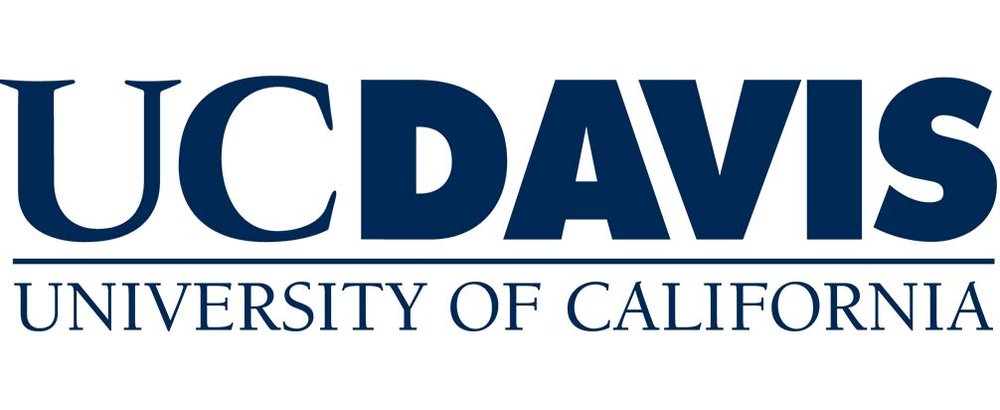
Points: 11
Program Website
The University of California-Davis is a public land-grant research university and the third-largest campus by enrollment in the University of California System. Established as University Farm in 1905, UC-Davis offers a high-value computer science major for students looking for a low-cost bachelor’s degree with the best return on investment. The economical bachelor’s degree program focuses on designing systems for application in management, industry, and science. Advanced areas of study include database systems, networking, and programming. Students may customize their degree through courses in data visualization, artificial intelligence, computer graphics, and advanced mathematics. The curriculum also emphasizes software while allowing students to master essential concepts of hardware.
In-State Tuition: $14,495
Out-of-State Tuition: $44,249
20-Year ROI: $493,000
Average Mid-Career Salary: $123,300
4. Virginia Polytechnic Institute and State University
Blacksburg, Virginia

Points: 10
Program Website
Virginia Polytechnic Institute and State University is a public land-grant research university that began in 1872 as Virginia Agricultural and Mechanical College. Virginia Tech offers a high-value B.S. in Computer Science through its College of Engineering. Students build a foundation in software development, problem-solving, algorithms, and software. They may customize the program based on their interests and career goals through electives in areas such as programming, data mining, bioinformatics, artificial intelligence, networking, and human-computer interaction. Graduates are prepared for employment immediately after earning their degrees as well as for graduate study in computer science, information technology, law, and business.
In-State Tuition: $13,691
Out-of-State Tuition: $32,835
20-Year ROI: $531,000
Average Mid-Career Salary: $114,000
5. Lamar University
Beaumont, Texas

Points: 8
Program Website
Lamar University is a public institution of higher education and a member of the Texas State University System. Founded in 1923 and named for the second president of the Republic of Texas, Mirabeau B. Lamar, the school offers a top-value B.S. in Computer Science program that is accredited by the Accreditation Board of Engineering Technology (ABET). The broad-based curriculum emphasizes areas such as computer architecture, multimedia, databases, networking, and software engineering as well as the theory of programming languages, information systems, data structures, and the applications of computer science. Graduates are prepared for careers as network and database administrators, software and application developers, and programmers.
In-State Tuition: $8,494
Out-of-State Tuition: $18,622
20-Year ROI: $400,000
Average Mid-Career Salary: $101,200
Psychology
Undergraduates who earn a Bachelor’s in Psychology degree may find work as care facility workers, data analysts, or research associates. They may also use this degree as a stepping stone to becoming a psychologist or counselor, those these positions typically require a master’s degree or doctorate to practice.
1. CUNY Baruch College
New York, New York
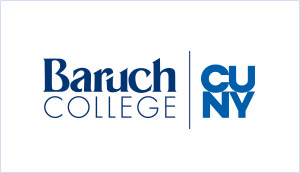
Points: 12
Program Website
The Bernard M. Baruch College, or simply Baruch College, is a public institution of higher learning and a member of the City University of New York (CUNY) System. Founded in 1919, Baruch offers two low-cost psychology bachelor’s degrees with the best return on investment: a Bachelor of Arts in Psychology and a Bachelor of Business Administration in Industrial-Organizational Psychology. Both economical degree programs focus on the study of behavior and the mind while applying the field of psychology to practical settings, including school, legal, and clinical environments as well as the workplace. Students benefit from a strong curriculum, simple observations, and rigorous experimentation.
In-State Tuition: $7,462
Out-of-State Tuition: $15,412
20-Year ROI: $527,000
Average Mid-Career Salary: $107,100
2. University of Colorado-Boulder
Boulder, Colorado

Points: 10
Program Website
The University of Colorado-Boulder is a public space-grant research university and the flagship campus of the University of Colorado System. Founded in 1876, CU-Boulder offers a top-quality B.A. in Psychology through its College of Arts and Sciences that has been ranked as one of the best undergraduate psychology programs in the country by the National Academy of Sciences. The curriculum focuses on the principles of mind-brain relationships as well as human social interactions, behavior, emotion, and cognition. Students may earn their degrees within four years of full-time study. CU-Boulder also offers a Bachelor of Arts in Neuroscience.
In-State Tuition: $12,500
Out-of-State Tuition: $38,318
20-Year ROI: $451,000
Average Mid-Career Salary: $109,900
3. Texas Tech University
Lubbock, Texas

Points: 8
Program Website
Founded in 1923 as Texas Technological College, Texas Tech University is a public research university and the primary campus of the Texas Tech University System. Texas Tech’s inexpensive B.A. in Psychology is designed to provide a foundation in applied, theoretical, and experimental psychology through required courses in statistical methods, research methods, and general psychology. The high-value curriculum is organized into six groups: learning and cognition; individual differences, personality, and social processes; applied professional psychology; developmental bases of behavior; biological bases of behavior; and additional psychology courses. Beyond the classroom, students have opportunities to participate in various service activities and research projects of faculty members.
In-State Tuition: $9,300
Out-of-State Tuition: $19,260
20-Year ROI: $446,000
Average Mid-Career Salary: $106,500
4. University of Mary Washington
Fredericksburg, Virginia

Points: 8
Program Website
Founded as the Fredericksburg Teachers College in 1908, the University of Mary Washington is a public institution of higher learning and a top choice for a psychology bachelor’s degree with the best return on investment. UMW offers a low-cost B.S. in Psychology that focuses on both the traditional areas of the field as well as its recent theories and trends. Courses include statistics and methodology, psychological disorders and behavior theory, and development and personality. Beyond the classroom, UMW offers facilities for behavioral research with animals, social/developmental psychology, cognitive psychology, and physiology labs. Students must complete a one-year research project and presentation or internship.
In-State Tuition: $13,270
Out-of-State Tuition: $29,696
20-Year ROI: $404,000
Average Mid-Career Salary: $103,600
5. University of Connecticut
Storrs, Connecticut

Points: 5
Program Website
Founded in 1881 as Storrs Agricultural School, the University of Connecticut is a public space-, sea-, and land-grant research university that is often ranked as one of the best public universities in New England and the U.S. With more than 1,500 undergraduate students, the top-value psychological sciences major is one of the largest programs at UConn. Students can choose from either a low-priced B.A. or a B.S., each consisting of three tracks: honors, research, or a standard track. Students have the opportunity to explore the various subdisciplines of the field, including social psychology, developmental psychology, and neuroscience. UConn also offers a cognitive science major and a linguistic/psychology undergraduate program.
In-State Tuition: $17,226
Out-of-State Tuition: $39,894
20-Year ROI: $480,000
Average Mid-Career Salary: $67,800
Economics
Bachelor’s degrees in economics teach undergraduates skills that they can apply to real-world business settings, including finance, critical thinking, and statistics. Also, students develop the thinking, writing, and quantitative skills that many employers, both large and small, look for in both the public and private sectors.
1. Purdue University
West Lafayette, Indiana
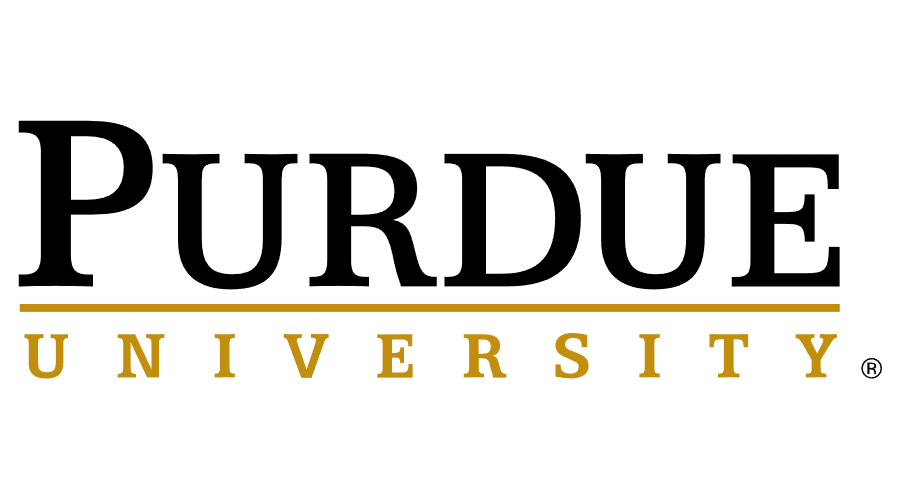
Points: 11
Program Website
Purdue University, established in 1869, is a public space-, sea-, and land-grant research university and the flagship campus of the Purdue University System. Students seeking an affordable economics bachelor’s degree with the best return on investment can pursue either a high-value Bachelor of Science or a Bachelor of Arts in Economics degree. Both programs required 120 credits of study, including courses in microeconomics and macroeconomics, microeconomic theory, and econometrics. Students may also choose from 10 areas of concentration such as accounting, management, marketing, finance, and data analytics. Purdue also offers economics-related majors in agricultural economics, financial counseling and planning, finance, and data science.
In-State Tuition: $9,992
Out-of-State Tuition: $28,794
20-Year ROI: $557,000
Average Mid-Career Salary: $110,000
2. University of California-Santa Barbara
Santa Barbara, California
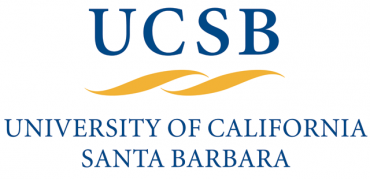
Points: 11
Program Website
Established in 1891 as the Anna Blake School, an independent teachers’ college, the University of California-Santa Barbara is a public research university and one of 10 campuses that make up the University of California System. UCSB offers four economical Bachelor of Arts degrees through its College of Letters and Science: economics, pre-economics, economics and accounting, and pre-economics and accounting. Areas of study include econometrics, macroeconomics, and microeconomics as well as economic development and regulation, financial management, and accounting. Beyond the classroom, students have many opportunities to join economics-focused student-run clubs and organizations, including the Undergraduate Economics Association and the Undergraduate Accounting Society.
In-State Tuition: $14,391
Out-of-State Tuition: $44,145
20-Year ROI: $505,000
Average Mid-Career Salary: $128,600
3. University of Florida
Gainesville, Florida

Points: 10
Program Website
The University of Florida, established in 1853, is a public research university and a senior member of the State University System of Florida. UF’s Department of Economics offers a low-cost B.A. in Economics that includes coursework in public choice, game theory, the economics of sports, law and economics, and international trade. Graduates are prepared for careers in academia, public policy, government, law, and business as well as for graduate study in professional schools and the social sciences. UF also offers a high-value, combined Bachelor of Arts/Master of Arts program that allows students to earn both degrees simultaneously.
In-State Tuition: $6,381
Out-of-State Tuition: $28,659
20-Year ROI: $430,000
Average Mid-Career Salary: $108,800
4. Clemson University
Clemson, South Carolina

Points: 8
Program Website
Founded in 1889, Clemson University is a public land-grant research university and the second-largest institution of higher learning by enrollment in the state. At Clemson, students can choose from either a low-priced Bachelor of Arts or a Bachelor of Science in Economics. Both inexpensive degree programs provide a foundation in statistical analysis, international economy, and microeconomics as well as the economics of specialties such as banking, education, government, healthcare, and sports. Students pursuing the B.S. degree must complete a pre-business core curriculum before taking economics classes and apply as a pre-business major, while those pursuing the B.A. degree can apply directly.
In-State Tuition: $15,558
Out-of-State Tuition: $38,550
20-Year ROI: $461,000
Average Mid-Career Salary: $106,700
5. University of Massachusetts-Amherst
Amherst, Massachusetts

Points: 6
Program Website
Established in 1863 as Massachusetts Agricultural College, the University of Massachusetts-Amherst is a public land-grant research university and the flagship campus of the University of Massachusetts System. UMass-Amherst offers a Bachelor of Arts in Economics that focuses on the study of microeconomic and macroeconomic theory, public policy, economic development, and market structures. Students must complete at least one statistics course, two intermediate theory courses, and two levels of calculus by the end of their second year. Through the rigorous curriculum, students also develop their knowledge of civic engagement, data analysis techniques, and critical thinking skills.
In-State Tuition: $16,389
Out-of-State Tuition: $35,710
20-Year ROI: $434,000
Average Mid-Career Salary: $103,000
Political Science
Students who major in political science, government, or politics can use their academic background to pursue several high-paying careers, including political scientists, journalists, lawyers, lobbyists, or public officers. Keep in mind that the ROI in this field will depend more on the occupation chosen rather than the school attended.
1. University of Maryland-College Park
College Park, Maryland

Points: 11
Program Website
The University of Maryland-College Park is the flagship university of the University System of Maryland. Established in 1856 as Maryland Agricultural College, UMD also offers a low-cost political science degree with the best return on investment. Students can choose from a general government and politics major that explores topics in political science such as public law and administration, political theory, international relations, comparative politics, and American politics. UMD also offers an optional concentration in international relations that focuses on how states maintain peace, why states engage in war, and the causes of global financial crises.
In-State Tuition: $10,779
Out-of-State Tuition: $36,891
20-Year ROI: $577,000
Average Mid-Career Salary: $113,400
2. University of Washington
Seattle, Washington

Points: 11
Program Website
Established in 1861, the University of Washington is a public research university and a top choice for an affordable political science bachelor’s degree with the best return on investment. UW’s Department of Political Science offers a top-value B.A. in Political Science degree that focuses on areas such as comparative politics, international relations, American politics, political theory, and political science as a social science. Beyond the classroom, undergraduates gain practical experience through fieldwork, service-learning, and internships. Faculty also provide opportunities for supervised, individual study through optional senior theses, independent reading/research, and research fellowships.
In-State Tuition: $11,465
Out-of-State Tuition: $38,166
20-Year ROI: $555,000
Average Mid-Career Salary: $112,300
3. California State University-Sacramento
Sacramento, California

Points: 10
Program Website
California State University-Sacramento is a public space-grant institution of higher education and a member of the 23-school California State University System. Founded in 1947, CSU-Sacramento offers a best-value political science major through the College of Social Sciences and Interdisciplinary Studies. Students can choose from three inexpensive undergraduate B.A. programs: political science, political science with a concentration in international relations, and political science and journalism. Students in all programs develop their knowledge of the practice and theory of political science across several fields, including international relations, public law and policy, comparative politics, American politics, and political theory.
In-State Tuition: $7,368
Out-of-State Tuition: $19,248
20-Year ROI: $409,000
Average Mid-Career Salary: $101,100
4. University of Virginia
Charlottesville, Virginia

Points: 9
Program Website
Founded by Thomas Jefferson in 1819, the University of Virginia is a public sea- and space-grant research university and the state’s flagship institution of higher learning. UVA’s Department of Politics offers two affordable undergraduate majors in foreign affairs and government. Both high-value degree programs are similar in that they require coursework in political theory, international relations, comparative politics, and American politics. However, government majors concentrate on either broader questions about political theory or the United States, while foreign affairs majors choose an area of the world on which to focus.
In-State Tuition: $17,798
Out-of-State Tuition: $50,900
20-Year ROI: $518,000
Average Mid-Career Salary: $129,200
5. College of William & Mary
Williamsburg, Virginia
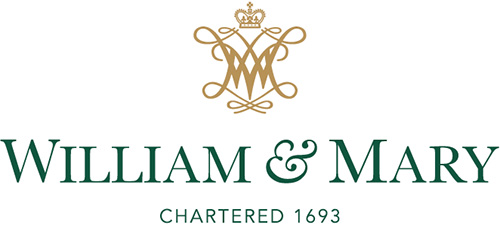
Points: 8
Program Website
The College of William & Mary, founded in 1693, is a public research university and the second-oldest institution of higher learning in the country, after Harvard University. W&M offers a low-cost B.A. in Government program that includes core courses in American government and politics, international politics, comparative politics, and political theory. Through the curriculum, students investigate the political actions and beliefs of everyone from individual citizens up to those of international states. Majors are encouraged to conduct an independent study project or a collaborative research project with faculty. W&M also provides study-abroad programs, graduate placement assistance, scholarships, and internships.
In-State Tuition: $23,628
Out-of-State Tuition: $46,854
20-Year ROI: $516,000
Average Mid-Career Salary: $122,700
Frequently Asked Questions
What is ROI in Higher Education?
Pursuing a college degree can be a costly investment for students and parents alike. Nowadays, it is common for people to worry about the significant amount of student loans and education debt. Some graduate with more than $50,000 worth of debt and are making less than $30,000 per year. How are they to pay off this debt on such a low income? This is where ROI in higher education comes in.
One of the first things to think about is how much you will need to pay to get your degree, including tuition, living expenses, books, technology, student fees, entertainment, transportation, and other basic expenses. Once you have an idea of how much the degree will cost, it is important to research prospective careers and the salaries that come with these occupations. Look at inflation, industry growth, and geographic areas and their cost of living. For example, someone who wants to be a K-12 teacher in San Diego should look at the cost of living in San Diego instead of, say, being an educator in New York City. After you have an occupation in mind, calculate your lifetime earnings over the next 20 or 30 years by researching average salary growth and adjustments in the associated cost of living. Once you calculate the total cost of lifetime earnings, subtract the amount you expect to pay for your degree and compare this number with other schools and salaries you are considering.
What are the Best Majors for the Highest Salaries?
Every year, tuition costs at colleges rise. According to the National Center for Education Statistics, tuition at private institutions increased 24 between 2006 and 2016, the most recent data available, while costs to attend public colleges jumped 31 percent over the same time period. As costs increase, it is becoming more important for prospective students to carefully consider the majors they wish to pursue. While any college degree will put most students ahead of the curve and offer an advantage over those with only a high school degree, the following are the top five best undergraduate majors with the highest salaries, according to PayScale. We also included early career pay figures for those with up to five years of experience and mid-career earnings for alumni with 10 or more years of experience.
Petroleum Engineering
- Early Career Pay: $94,500
- Mid-Career Pay: $176,900
Electrical Engineering and Computer Science
- Early Career Pay: $88,000
- Mid-Career Pay: $142,200
Applied Economics and Management
- Early Career Pay: $58,900
- Mid-Career Pay: $140,000
Operations Research
- Early Career Pay: $77,900
- Mid-Career Pay: $137,100
Political Economy
- Early Career Pay: $57,600
- Mid-Career Pay: $136,200
While it’s no surprise that science, technology, engineering, and math (STEM) majors are the top-paying majors by salary, that doesn’t mean that students should avoid studying majors in the arts, education, social sciences, or humanities. In fact, many of these majors also lead to lucrative, high-paying careers as well; it just may take a little longer for graduates in these fields to reach their prime earning potential.
Is the ROI Higher at a Public or Private College?
The Georgetown Center on Education and the Workforce has released a new study, titled “A First Try at ROI: Ranking 4,500 Colleges.” The report uses data from an online tool created in 2015 by the U.S. government — the expanded College Scorecard — and considers more than 4,500 schools, including training academies, for-profit colleges, and traditional two- and four-year private and public colleges.
In this study, experts report that, 40 years after graduation, a bachelor’s degree from a private institution has a higher return, on average, than one earned at a public college. Of the 10 postsecondary schools with the best long-term net economic gain after the 40-year period, all are four-year postsecondary institutions and eight are private nonprofit schools. This contradicts what many have been led to believe in the past: private Ivy League colleges produce the highest-paid graduates.
According to the report, even though students take on double the amount of student loans to attend a private school, a bachelor’s degree from a private nonprofit institution is worth $8,000 more per year 10 years after enrollment. In the long term, the net economic gains for enrolling at a for-profit private institution are $551,000 versus $838,000 at a nonprofit private school and $765,000 at a public university. Schools with the lowest long-term economic value include colleges specializing in the arts, beauty schools, and theological institutions.
College is an expensive investment, and taking out a significant amount of debt to pursue a career in a low-income or dead-end industry does not make financial sense. Although it is important to pursue your dreams and passions, it is just as important to make sure that those dreams and passions translate into sustainable and realistic life plans that pay off down the road. We hope that our list of the above 50 bachelor’s degrees with the best return on investment help to provide a sense of direction for those looking for lucrative majors and better-than-average ROIs.
AS Staff
This concludes our ranking of the top 50 bachelor’s degrees with the best return on investment.
Other Rankings of Interest:
The 50 Most Affordable Colleges with the Best Return
The 10 Most Affordable Law Schools in the United States
20 Best Affordable Online Colleges for Computer Networking Degree
15 Best Affordable Animation Degree Programs (Bachelor’s)
25 Best Colleges for Student Athletes
25 Most Affordable Master’s of Statistics Degrees
20 Tuition-Free Colleges
25 Most Affordable Online Master’s of Business Administration Degrees
25 Most Affordable Online Master’s of Mathematics/ Statistics Education Degrees

 The Best Colleges
The Best Colleges The Lowest Costs
The Lowest Costs The Highest Returns
The Highest Returns